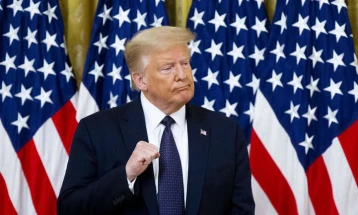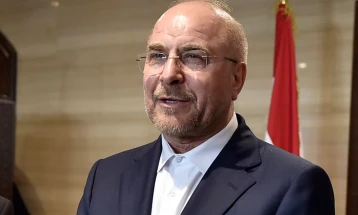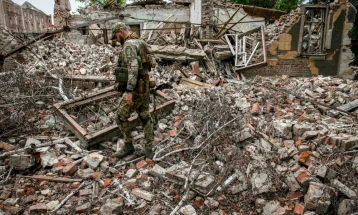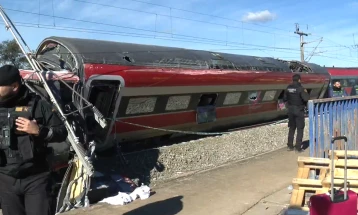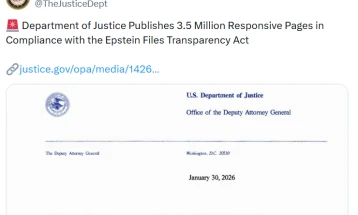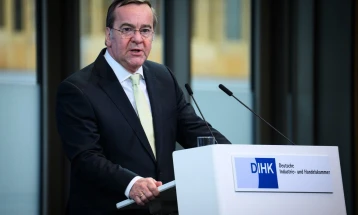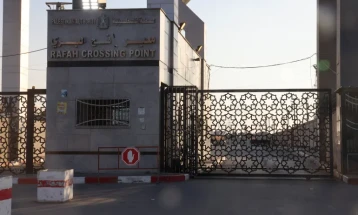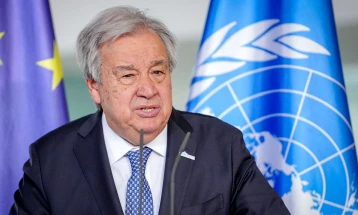Scholz issues call for European sovereignty and stronger defences
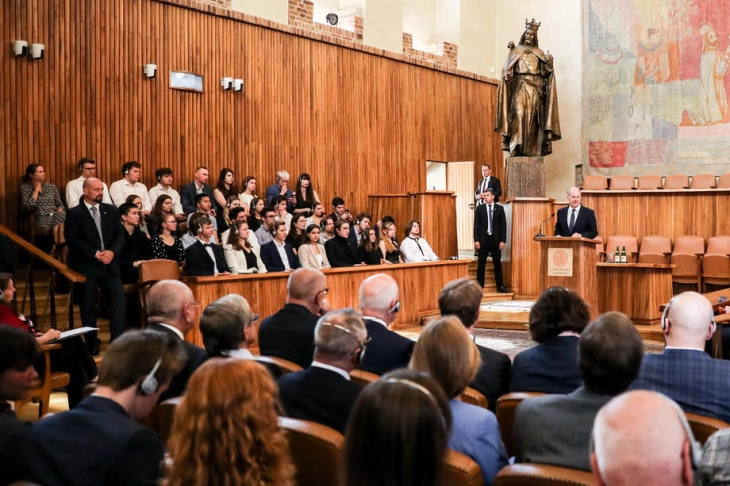
Prague, 29 August 2022 (dpa/MIA) - German Chancellor Olaf Scholz has issued a call for greater European sovereignty in the face of "neo-imperialist autocracy," and promised to take a leading role in the building up of European air defences in the wake of the war in Ukraine.
"I talked about a watershed [German: "Zeitenwende"] following Russia’s invasion of Ukraine in February ... The brutal attack on Ukraine is therefore also an attack on Europe’s security order," he said in a speech at Prague's historic Charles University on Monday.
"Right now, we’re asking ourselves once again where the dividing line will run between this free Europe and a neo-imperialist autocracy in the future," he said.
Part of this effort meant building up stronger military defences, he said, with Berlin ready to play a leading role in an area where Europe "had a lot of catching up to do."
"That is why we in Germany will be investing very significantly in our air defence over the years ahead. Germany will, from the very start, design that future air defence in such a way that our European neighbours can be involved if desired."
A "jointly developed air defence system in Europe" would be "more efficient and cost-effective" he argued.
In a speech that referenced the war in Ukraine throughout, Scholz said Germany could also assume "special responsibility" in terms of building up Ukraine’s artillery and air defence capacities.
There would be a conference in Berlin on October 25 to plan for Ukraine's reconstruction, he announced.
Billed as an expansion of his notion that the Russian invasion constituted a "Zeitenwende" - which translates as "turning point" or "watershed" - the speech offered few concrete measures, and saw Scholz reaffirm several of his previous positions: a commitment to EU enlargement; support for reforms of EU institutions including the European Parliament; a gradual end to unanimous decision making in foreign policy; and Germany's participation in a planned EU rapid reaction force.
He offered French President Emmanuel Macron support for his idea of a European Political Community, and urged closer contact between leaders to tackle large themes which affected the whole continent.
Looking to relations with countries further afield, Scholz hailed the EU's ties with the United States under President Joe Biden, but cautioned that Washington's total attention was not guaranteed amid increased tensions with China.
Scholz warned that China and other authoritarian powers can exploit the bloc's differences, but mainly left future EU-China relations unaddressed.
He gave the speech in the Karolinum, the historic main building of Charles University, which was founded in 1348 and is one of the oldest universities in Europe. His predecessor, Angela Merkel, also spoke in the Karolinum in 2008.
Afterwards, Scholz was set to meet Czech Prime Minister Petr Fiala.
The Czech Republic took over the EU Council presidency on July 1. A meeting of foreign ministers will take place in Prague on Tuesday and Wednesday, and an EU summit is planned there for the beginning of October.
